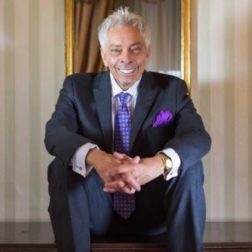
(Mike McVay) More than a decade ago, the fine people at Disney offered the business community an opportunity to attend Disney University, which I took advantage of myself. Several of my friends in media have also taken the course. Those who’ve been an employee of ABC also attend Disney University, even if remotely. I suspect that they all agree with me that the teachings of Disney are directly applicable to the entertainment world. I’ve successfully applied these rules to radio for years.
When we arrived on “campus” we were told that Disney University would start with Traditions. This is where we were taught the history of Walt Disney and his brother Roy. We were told about the first mouse that was drawn, named Mortimer Mouse, before he later became Mickey. Decades of history are shared. They do that so that those who will work at the park understand the principles and objectives of the Disney family. How often do we spend time teaching a new employee about a station, its legacy and its purpose? Wouldn’t it be great to take a new employee through a power point to provide that person with a better understanding of where they fit in and what will be expected of them. You’re joining a team.
They have no employees. They have Cast Members. We were cast into roles. As a cast member, one’s role might be as a ride operator, a character, maybe you’re selling candy, or maybe you’re cast into the role of being a street sweeper. It’s a big difference between being a street sweeper and being an actor playing one. Why would we not cast our talent into roles?
The actors and actresses stay in character. Mickey puts on his head first. Because the minute the head goes on, you’re now the character. Heaven forbids someone should see any character without their head. Same goes for personalities. When you’re out in public, and members of your community see you, stay in character. We’ve all heard the stories of a person driving a station vehicle making an obscene gesture at a driver that cut them off.
The park is a Stage Area … and nothing should ever be out of place on-stage. If you’re standing behind a ride, you might see a door that opens into the park, with a sign on it that says “Stage Area.” Nothing should be out of place on stage. For instance, everyone picks-up trash. Nothing should be out of place. The studio is our stage. No visitors. No personal calls. No social media that doesn’t have something to do with your show or the station. Stay in the studio.
Cast Members Know Everything. They’re never allowed to say “I don’t know.” If the cast member is asked a question that they don’t know the answer to they’re instructed to call a park operator and find the answer for the guest. Radio should be the same way. We’re supposed to know the answers. It makes me crazy when I hear an on-air personality ask the audience for information that can be searched on-line. This also points to preparation. The better prepared you are the better you will sound on-air and the greater your connection will be with the audience.
Low Ride Out is a concept that I have frequently applied to morning shows. When they add a ride to one of the Disney parks, the ride lowest on the list of “attendance” goes away. That’s so that the park is never cluttered. That’s why, unlike other parks where the line from one ride intersects with the line from another, you can move through a Disney park without hesitation. Same for a show. You want to add a new Benchmark bit or a feature to your show? What does away? Keep from cluttering the station.
They Don’t Sell Beer at Disneyworld or Disneyland. They do sell it in Epcot Center, but not inside of the amusement park where there are mostly families with children. Who wants a bunch of intoxicated adults, yelling at their children, as they drag them through the park? The application for radio is that you don’t offend your audience with inappropriate advertisers or promotions that are unsuitable for your target audience. Can you imagine how much more money Disney would make if they did sell beer inside the park? It would ruin the atmosphere. Same goes for your station.
The final lesson that we learned was that the goal isn’t to meet the guest’s expectations. It’s to exceed them. We were told a story of how one of the transportation boats, trying to dock and unload guests, broke free of the mooring with a handful of visitors falling into the water. They pulled them all out safely, gave them Disney branded clothes to wear while they cleaned and dried their clothes, provided them all with new cameras and cell phones, or whatever other electronics they lost, and replaced expensive purses, even if they recovered what was soaked. They didn’t have to do that much for each person, but they wanted to do it so that the guests would tell the story of how they were cared for by Disney. Caring this significantly for our audiences, and our sponsors, should be the norm.
Mike McVay is President of McVay Media and can be reached at [email protected]


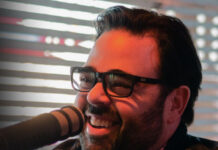
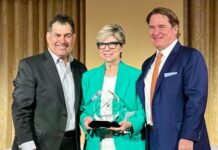

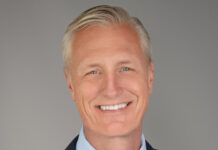
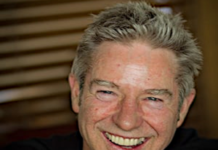


Disney customer service is known to be the golden standard. However, will Disney also suffer from the worldwide pandemic?
Thanks for the great article, knowing Disneyland for a long time but never understand why it’s so popular, now we get the clue.
Mike,
Thanks for the reminders about establishing, maintaining and refining brand values. An obsession of true leaders.
As I recall there was once a Clear Channel University back in the day. They tell me it was based on Disney U. It was likely one of the first things the company eliminated when the going got tough.
Disney customer service is the gold standard. Thanks so much for sharing your experience from Disney University.
Excellent article Mike. I especially am fond of the low ride out theory. I still reference it often today.
C’mon now, seriously…Was this written as some kind of joke? Or perhaps on a dare, or a lost bet??
I attended a Saga conference many years ago in Orlando, and was lucky enough to attend the Disney boot camp. I haven’t forgotten it either. Great summary, Mike.
The Disney philosophy breaks down perfectly the Golden Rule into the minutiae of practical sound business applications. Bravo Michael for being a most excellent student of our favorite mouse. It has served you well.